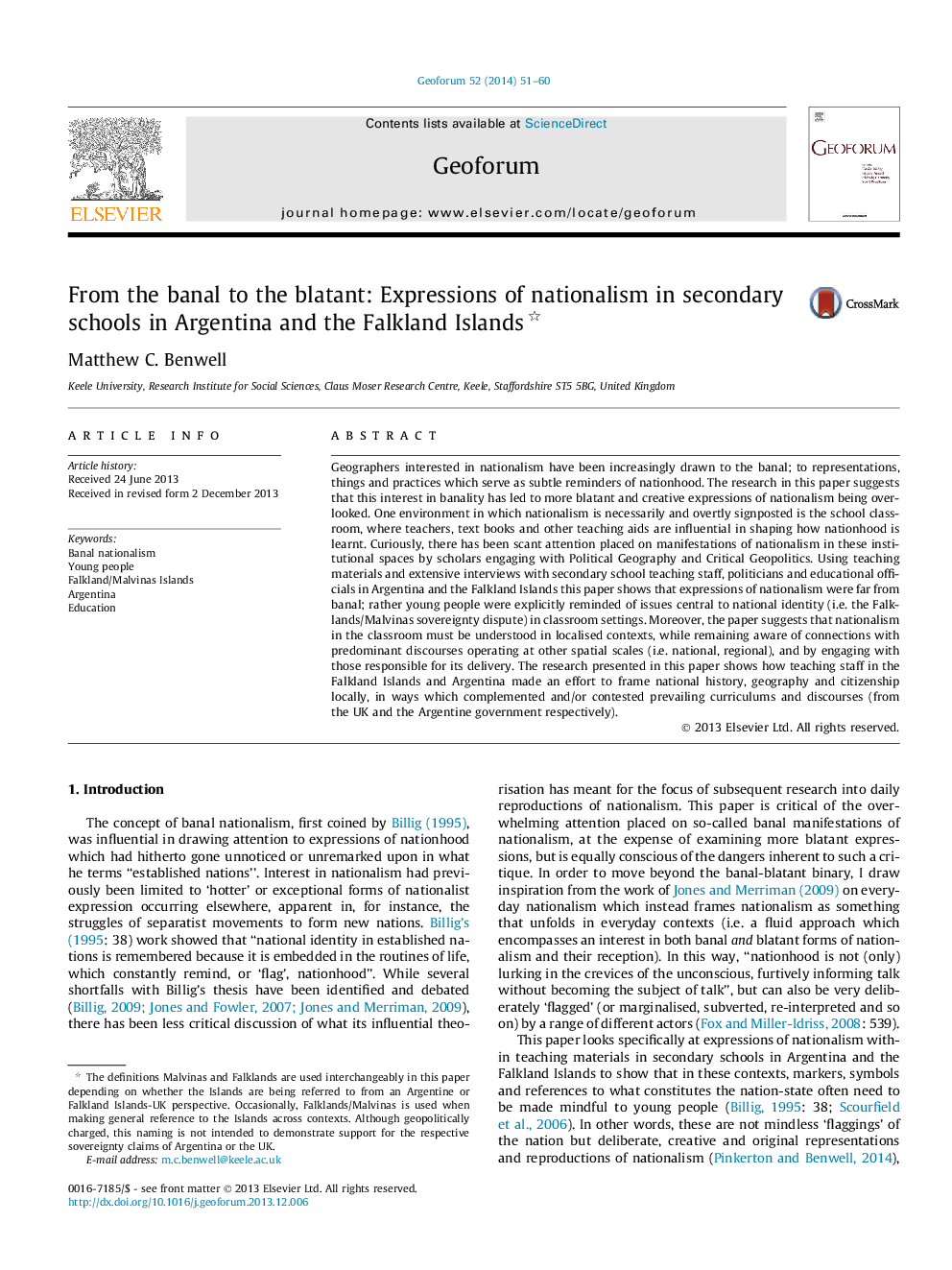| Article ID | Journal | Published Year | Pages | File Type |
|---|---|---|---|---|
| 5074068 | Geoforum | 2014 | 10 Pages |
Abstract
Geographers interested in nationalism have been increasingly drawn to the banal; to representations, things and practices which serve as subtle reminders of nationhood. The research in this paper suggests that this interest in banality has led to more blatant and creative expressions of nationalism being overlooked. One environment in which nationalism is necessarily and overtly signposted is the school classroom, where teachers, text books and other teaching aids are influential in shaping how nationhood is learnt. Curiously, there has been scant attention placed on manifestations of nationalism in these institutional spaces by scholars engaging with Political Geography and Critical Geopolitics. Using teaching materials and extensive interviews with secondary school teaching staff, politicians and educational officials in Argentina and the Falkland Islands this paper shows that expressions of nationalism were far from banal; rather young people were explicitly reminded of issues central to national identity (i.e. the Falklands/Malvinas sovereignty dispute) in classroom settings. Moreover, the paper suggests that nationalism in the classroom must be understood in localised contexts, while remaining aware of connections with predominant discourses operating at other spatial scales (i.e. national, regional), and by engaging with those responsible for its delivery. The research presented in this paper shows how teaching staff in the Falkland Islands and Argentina made an effort to frame national history, geography and citizenship locally, in ways which complemented and/or contested prevailing curriculums and discourses (from the UK and the Argentine government respectively).
Related Topics
Social Sciences and Humanities
Economics, Econometrics and Finance
Economics and Econometrics
Authors
Matthew C. Benwell,
